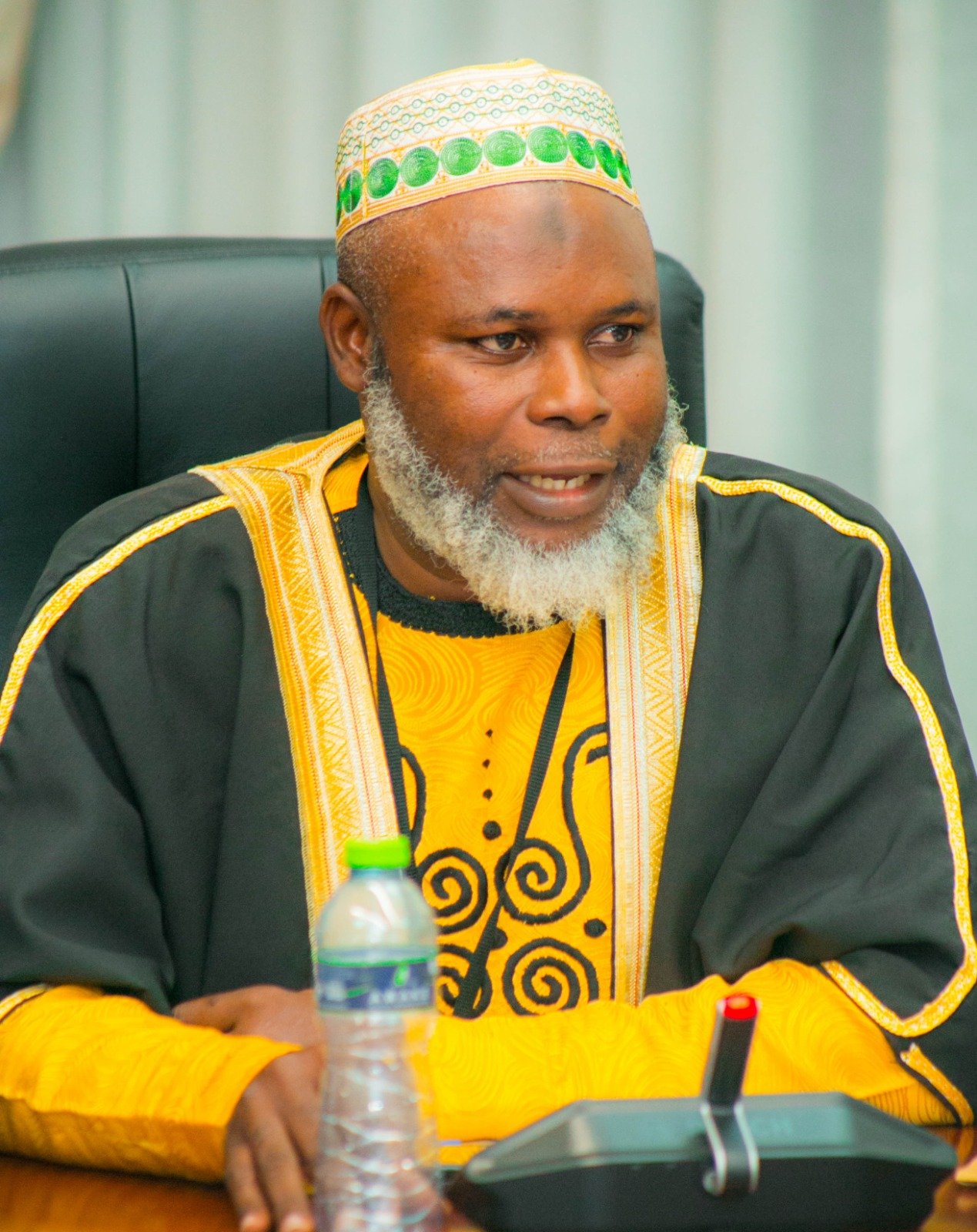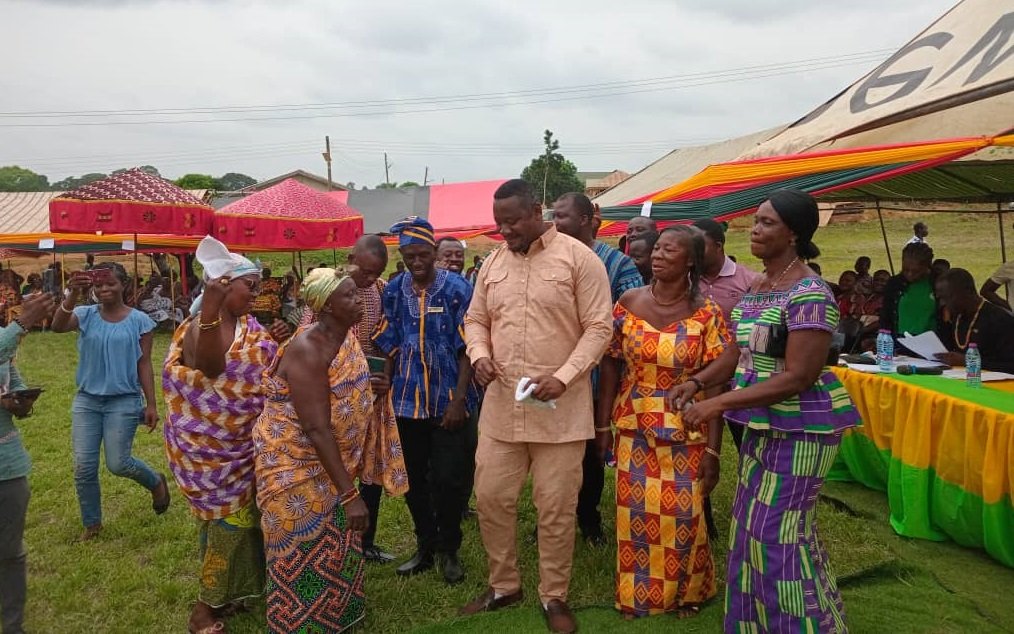Fruitful Living
The Sermon on the Mount (I)
Now He saw the crowds, He went up on the mountainside and sat down.
His disciples came to Him, and He began to teach them, saying: – Matthew 5:1-2 NIV
When Jesus had finished saying these things, the crowds were amazed at His teaching, because He taught as one who had authority, and not as their teacher of the law – Matthew 7:28-29 NIV
INTRODUCTION: What is this sermon!
The sermon on the Mount is probably the best-known part of the teaching of Jesus though arguably it is the least understood, and certainly it is the least obeyed. It is the nearest thing to a manifesto that He ever uttered, for it His own description of what He wanted His followers to be and to do. To my mind no two words sum it up better, or indicate more clearly its challenge to modern world, than the expression “Christian counter culture”.
In a way Christians find this search for cultural alternative one of the most hopeful, even exciting, signs of the times. This is because in His activities He is the comforter as well as the disturber. For the Holy Spirit, He necessarily convicts us of sin before He gives us the comfort of being our helper.
The first place to which Christians should be able to turn is the one place which they normally ignore, namely the church. For too often when Christians see in the church is not counter-culture but conformism, not a new society which they have renounced, not life but death then there is a lot of disappointment.
BACKGROUND TO THE SERMON ON THE MOUNT.
This is how God put it to the people of Israel soon after He had rescued them from their Egyptian slavery and made them His special people by covenant: “I am the Lord your God. You shall not do as they do in the land of Egypt, where you dwelt, and you shall not do as they do in the land of Canaan, to which I am bringing you. You shall not walk in their statutes.
You shall do My ordinances and keep My statutes and walk in them. I am the Lord your God.” This appeal of God to His people, it will be noted, began and ended with the statement that He was the Lord their God. This was because He was their covenant God, and because they were His special people, that they were to be different from everybody else. They were to follow His commandment and not take their lead from standards of those around them.
Throughout the centuries which followed, the people of Israel kept forgetting their uniqueness as the people of God. Although in Balaam’s words they were “a people dwelling alone, and not reckoning itself among nations”, yet in practice they kept becoming assimilated to the people around: “They mingled with the nations and learned to as they did.”
So they demanded a king to govern them “like all the nations”, and when Samuel remonstrated with them on the ground that God was their king, they were stubborn in their insistence: “NO! but we will have a king over us, that we also may be like all the nations.” Worse even than the inauguration of the monarchy was their idolatry.
“Let us be like the nations” they said to themselves”… and worship wood and stone.” So God kept sending His prophets to them to remind them who they were and to plead with them to follow His way. “Learn not the way of the nations,” He said to them through Jeremiah, and through Ezekiel, Do not defile yourselves with the idols of Egypt; I am the Lord your God.”
But God’s people would not listen to His voice, and the specific reason given why His judgement fell first upon Israel and then nearly 150 years later upon Judah was same:
“The people of Israel had sinned against the Lord their God… and had… walked in the customs of the nations…Judah also did not keep the commandments of the Lord their God, but walked in the customs which Israel had introduced.”
THE KINGDOM OF GOD.
All this is an essential background to any understanding of the Sermon on the Mount. The Sermon is found in Matthew’s Gospel towards the beginning of Jesus’ public ministry.
Immediately after His baptism and temptation He began to announce the good news that the Kingdom of God, long promised in the Old Testament era, was now on the threshold. He Himself had come to inaugurate it. With Him the new age had dawned, and the rule of God had broken into history.
‘Repent,’ He cried, “for the Kingdom of God is at hand.” Indeed, “He went about all Galilee, teaching in their synagogues and preaching the gospel of the Kingdom.” The Sermon on the Mount, then, is to be seen in this context. It portrays the repentance and the righteousness which belong to the Kingdom. That is, it describes what human life and human community look like when they come under the gracious rule of God.
And what they look like? Different! Jesus emphasised that His true followers, the citizens of God’s Kingdom, were to be entirely different from others. They were not to take a cue from the people around them, but from Him, and so prove to be genuine children of their Heavenly Father.
The key text of the Sermon of the Mount is Matthew 6:8: “Do not be like them.” It is immediately reminiscent of God’s Word to Israel in olden days: “You shall not do as they do.” It is the same call to be different. And right through the Sermon on the Mount this theme is elaborated. Their character was to be completely distinct from that admired by the world (the beatitudes). They were to shine like lights in the prevailing darkness. Their righteousness was to exceed that of the scribes Pharisees, both in the ethical behaviour and religious devotion, while their love was to be greater and their ambitions nobler than those of their pagan neighbours.
To be continued!
STAY BLESSED!
For further inquires please contact us on Tel Nos. 0268130615 or 0243588467
Email: saltnlightministries@gmail.com
Website: saltandlightgh.org.
By Dr Joyce Aryee
Fruitful Living
Institution of Marriage in Islam (Pt.3)

Regarding sexual intimacy, it is also prohibited for a wife to demand money or gifts before allowing her husband to engage in sexual relations. Islam views this as a form of exploitation and sin. A marital relationship must be based on mutual love, respect, and affection rather than material gain.
Prohibition of sexual intercourse during menstruation
Islam has clear guidelines regarding sexual relations during certain times, particularly when a woman is menstruating. The Qur’an prohibits sexual intercourse during menstruation, stating:
“And they ask you about menstruation. Say: ‘It is harm, so keep away from women during menstruation. And do not approach them until they are pure. And when they have purified themselves, then come to them from where Allah has ordained for you. Indeed, Allah loves those who are constantly repentant and loves those who purify themselves’” (Qur’an 2:222).
This verse emphasises the importance of refraining from sexual activity during menstruation due to physical and spiritual reasons. However, all other forms of affection and companionship are allowed, and husbands should continue to care for their wives during this time with love and respect.
Islamic law encourages cleanliness and personal hygiene, especially in matters related to physical intimacy. After the menstruation period ends, it is recommended that the wife perform ghusl (ritual purification) before resuming sexual relations with her husband.
Rights of Children on Parents
Islam emphasises the rights of children on their parents, as marriage is the foundation of family life. Parents are obligated to provide their children with proper care, education, and moral guidance. The Qur’an states: “O you who have believed, protect yourselves and your families from a Fire whose fuel is people and stones…” (Qur’an 66:6).
This highlights the parents’ responsibility to raise their children with a strong sense of morality and faith. Children have the right to a good name, religious upbringing, and education, and they must be treated with fairness and love.
In Ghana’s law, there is Children’s Right Act, Act 560 (1989) which states among other things,
• Section 4, Right to Name, Nationality and secure a Birth Certificate for the child
• Section 6(3) (a&b), protection from neglect, provide good guidance, care etc
• Section 8(1&2), Right to education and wellbeing (medical care, diet, clothing, shelter).
How Do Married Couples Resolve Their Differences in Islam?
Islam provides clear guidelines for resolving marital conflicts in a just and compassionate manner.
The Qur’an instructs that in the event of marital discord, both parties should seek reconciliation:
“If you fear dissension between the two, send an arbitrator from his people and an arbitrator from her people. If they both desire reconciliation, Allah will cause it between them” (Qur’an 4:35).
The goal is always to preserve the marriage and restore harmony. If reconciliation is not possible, Islam permits divorce as a last resort, but it is considered the most disliked permissible act in the eyes of Allah (SWT).
Rewards of Marriage in Islam
Marriage in Islam is not only a social institution but also an act of worship that brings great rewards. The Prophet Muhammad (PBUH) said: “When a man marries, he has fulfilled half of his religion, so let him fear Allah regarding the remaining half” (Bayhaqi, Shu’ab al-Iman).
Married couples are rewarded for fulfilling their marital responsibilities, showing kindness to each other, and raising righteous children who contribute positively to society.
Scholarly Thoughts About Marriage in Islam
Islamic scholars, such as Imam Al-Ghazali, have discussed marriage as a means of controlling desires and fulfilling one’s spiritual obligations. Modern scholars like Sheikh Yusuf Qaradawi also stress the importance of mutual respect and understanding in marriage, ensuring that both partners can grow spiritually and emotionally within the marriage.
Conclusion
In conclusion, marriage in Islam is a divinely ordained relationship based on mutual love, respect, and responsibility. By following the guidance of the Qur’an and Sunnah, and observing the legal frameworks in place, such as Ghana’s Mohammedan Ordinance, we can establish strong and harmonious marriages that contribute to the moral and spiritual development of society. May Allah (SWT) guide us to fulfill our marital responsibilities with sincerity and love.
The Writer is Kpone Katamanso Municipal Chief Imam, Democracy and Governance Law Student, UCC, Member of Ghana National Association of Certified Counsellors Certified by Ghana Psychology Council
References:
1.Qur’an, Surah Ar-Rum (30:21)
2.Qur’an, Surah An-Nisa (4:34, 4:4, 4:19, 4:35)
3.Qur’an, Surah Al-Baqarah (2:187, 2:221, 2:222, 2:223)
4.Qur’an, Surah At-Tahrim (66:6)
5.Ibn Majah, Hadith 1845, 1905
6.Tirmidhi, Hadith 1162, 1084
7.Bukhari, Hadith 5090
8.Children’s Right Act, Act 560 (1989)
9.Bayhaqi, Shu’ab al-Iman
10.Al-Ghazali, Ihya Ulum al-Din
11.Qaradawi, The Lawful and Prohibited in Islam
Fruitful Living
Adansi North DCE marks birthday on Farmers’ Day

It was a momentous day for the Adansi North District Chief Executive, Eric Kwaku Kusi, last Friday November 8, as the 40th National Farmers Day district level celebration held here at Adansi Adokwai coincidentally fell on his birthday.
On a low-key, Mr Kusi momentarily took to the floor, to exhibit his dancing skills responding to cheers of “Happy Birthday to you” from the audience, to which he also responded with a gesture of thanks and praises to God, as he stepped out to address the gathering.
He was joined on the dancing floor by the assembly members singing praises to God for the life of their indefatigable DCE.
In his address, Mr Kusi commended farmers in the Adansi North and the country as a whole “who tirelessly cultivate the land to feed all of us in our communities.”
He said the government realising the important role agriculture played in the economy and the challenges facing farmers due to the effects of climate change was rolling out initiatives and policies to support climate-resilient agriculture, including agriculture insurance programme for farmers.
In all 16 farmers were awarded various prizes for their contribution to food sufficiency in the country.
Francis Appiah, 41, who hails from Adokwai was adjudged the District Best Farmer for 2024, and took home a tricycle and other assorted items. The first runner-up prize went to Sakyi Kwabena also from Adokwai and the second runner-up went to Kwame Gyamera from Dompoase.
From Alhaji Salifu Abdul-Rahaman, Adansi Adokwai







